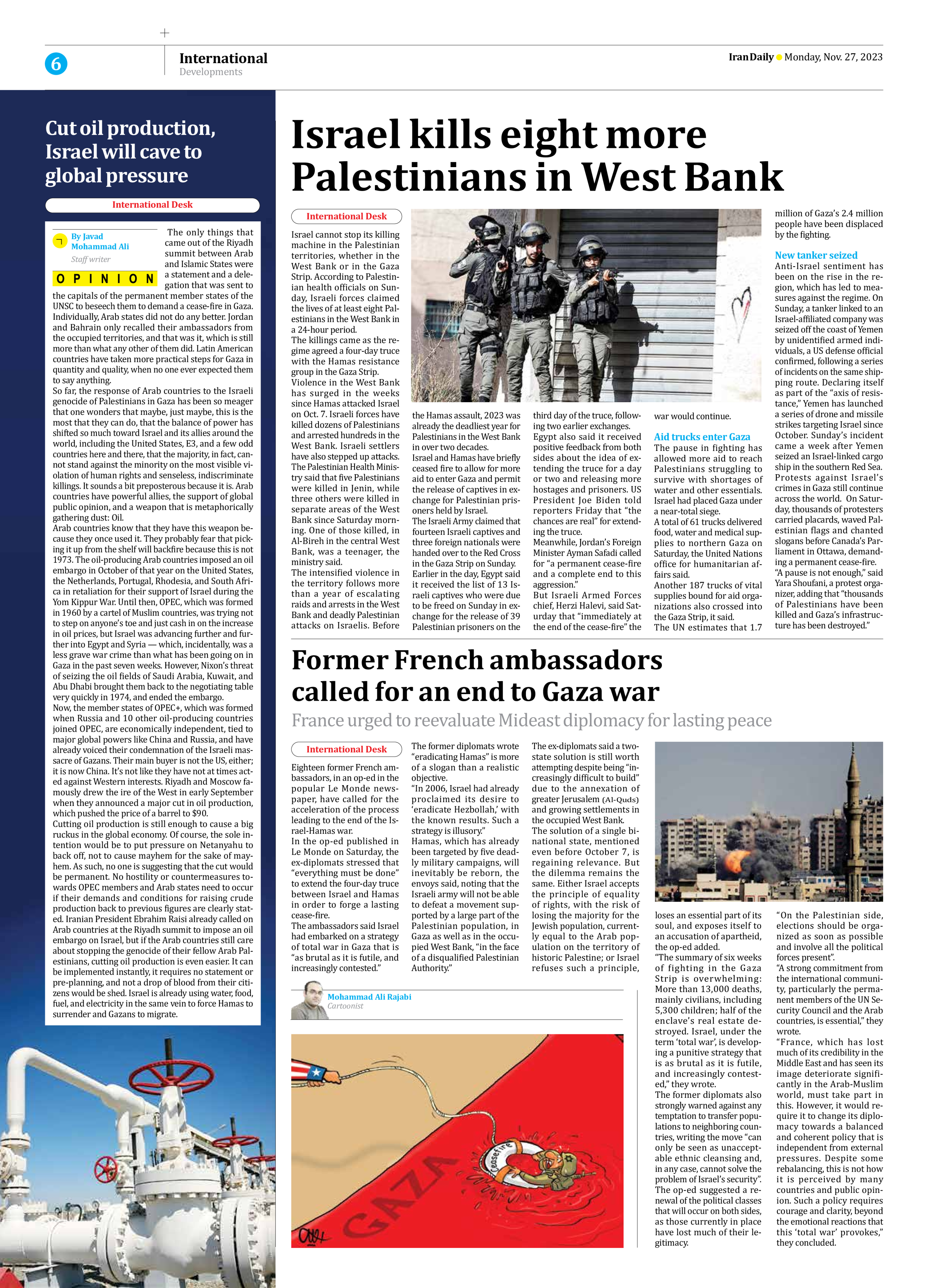
Cut oil production, Israel will cave to global pressure
By Javad Mohammad Ali
Staff writer
The only things that came out of the Riyadh summit between Arab and Islamic States were a statement and a delegation that was sent to the capitals of the permanent member states of the UNSC to beseech them to demand a cease-fire in Gaza.
Individually, Arab states did not do any better. Jordan and Bahrain only recalled their ambassadors from the occupied territories, and that was it, which is still more than what any other of them did. Latin American countries have taken more practical steps for Gaza in quantity and quality, when no one ever expected them to say anything.
So far, the response of Arab countries to the Israeli genocide of Palestinians in Gaza has been so meager that one wonders that maybe, just maybe, this is the most that they can do, that the balance of power has shifted so much toward Israel and its allies around the world, including the United States, E3, and a few odd countries here and there, that the majority, in fact, cannot stand against the minority on the most visible violation of human rights and senseless, indiscriminate killings. It sounds a bit preposterous because it is. Arab countries have powerful allies, the support of global public opinion, and a weapon that is metaphorically gathering dust: Oil.
Arab countries know that they have this weapon because they once used it. They probably fear that picking it up from the shelf will backfire because this is not 1973. The oil-producing Arab countries imposed an oil embargo in October of that year on the United States, the Netherlands, Portugal, Rhodesia, and South Africa in retaliation for their support of Israel during the Yom Kippur War. Until then, OPEC, which was formed in 1960 by a cartel of Muslim countries, was trying not to step on anyone’s toe and just cash in on the increase in oil prices, but Israel was advancing further and further into Egypt and Syria — which, incidentally, was a less grave war crime than what has been going on in Gaza in the past seven weeks. However, Nixon’s threat of seizing the oil fields of Saudi Arabia, Kuwait, and Abu Dhabi brought them back to the negotiating table very quickly in 1974, and ended the embargo.
Now, the member states of OPEC+, which was formed when Russia and 10 other oil-producing countries joined OPEC, are economically independent, tied to major global powers like China and Russia, and have already voiced their condemnation of the Israeli massacre of Gazans. Their main buyer is not the US, either; it is now China. It’s not like they have not at times acted against Western interests. Riyadh and Moscow famously drew the ire of the West in early September when they announced a major cut in oil production, which pushed the price of a barrel to $90.
Cutting oil production is still enough to cause a big ruckus in the global economy. Of course, the sole intention would be to put pressure on Netanyahu to back off, not to cause mayhem for the sake of mayhem. As such, no one is suggesting that the cut would be permanent. No hostility or countermeasures towards OPEC members and Arab states need to occur if their demands and conditions for raising crude production back to previous figures are clearly stated. Iranian President Ebrahim Raisi already called on Arab countries at the Riyadh summit to impose an oil embargo on Israel, but if the Arab countries still care about stopping the genocide of their fellow Arab Palestinians, cutting oil production is even easier. It can be implemented instantly, it requires no statement or pre-planning, and not a drop of blood from their citizens would be shed. Israel is already using water, food, fuel, and electricity in the same vein to force Hamas to surrender and Gazans to migrate.







